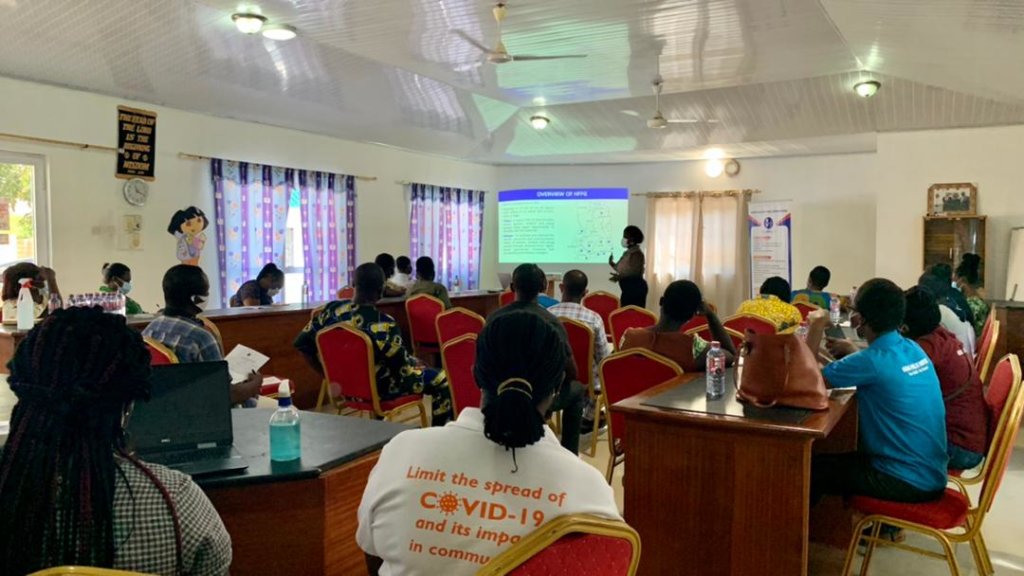As a key component of Primary Health Care, the Community-based Health Planning and Services (CHPS) initiative was instituted in Ghana over two decades ago to strengthen health care delivery at the community level by establishing CHPS compounds as the first point of contact and entry point to the health system.
It provides a vehicle for delivery of primary health care services at the community level as community members engage in decision making concerning their own health (GHS 2016). This is in line with global objectives of universal health coverage that all people have access to quality health care when and where they need it without financial challenges.

The success of CHPS depends on active participation of communities in the process of planning, designing and implementing health service delivery at the community level.
To achieve this, Community Health Management Committees (CHMCs) often comprising traditional leaders, opinion leaders and respected people in the communities, are formed to provide community level guidance and mobilization for the planning and delivery of health activities, including facilitating the work of Community Health Volunteers and to see to the welfare of Community Health Officers.
However, in most CHPS zones or communities, the CHMCs are either not in existence or are not functioning effectively.
The community’s role in CHPS has historically been weak as a result of the community members insufficiently understanding their roles (MoH, 2014).
Addressing the Problem
With funding from Population Action International (PAI), HFFG is implementing a 5-months project that aims to revamp and reconstitute CHMCs and build the capacities of eight CHMCs within the Ada and Prampram districts of Ghana by May 2021.
Trained CHMCs will be guided to develop action plans to address health issues affecting their communities. Five organized groups will also be engaged to foster inclusion, non-discrimination and access to essential health services by May 2021.
Expected Outcomes
At the end of the project, HFFG and its development partner, PAI, expects:
- Active and functional Community Health Management Committees (CHMC) playing their complementary roles to ensure successful CHPS implementation at the community level
- Active and functional Community Health Management Committees (CHMC) mobilizing resources to ensure successful CHPS implementation
- An increase in awareness and knowledge of primary health care, leading to an improved utilization of essential health services.

Compiled by:
Emmanuella Kwamee (HFFG)